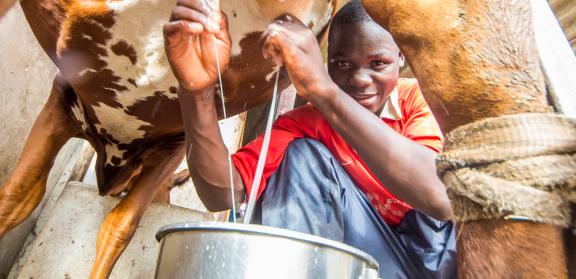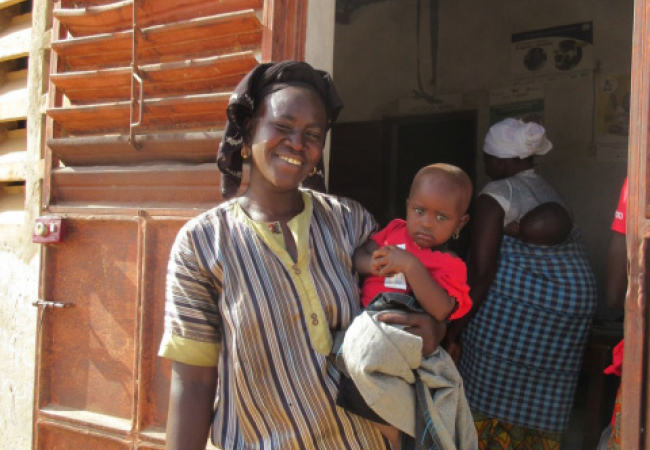
USAID works with partners to provide lifesaving food assistance to the most vulnerable around the world and reduce hunger and malnutrition so that people have adequate, safe and nutritious food. USAID Advancing Nutrition supported the Agency in integrating a greater focus on nutrition in the food assistance modalities that are part of both emergency and non-emergency programming. This involved developing tools, guides, and resources, operations research, and providing technical assistance to both USAID and its emergency and non-emergency implementing partners. USAID and its emergency and non-emergency implementing partners.
Strengthening Lipid-based Nutrient Supplement (LNS) Programming
USAID Advancing Nutrition supported USAID’s International Food Relief Partnership to improve the design and implementation of lipid-based nutrient supplement (LNS) programs. Strong evidence shows that preventive small-quantity lipid-based nutrient supplements (LNS-SQ) improves survival, growth, and development of children 6–24 months of age. Studies show that medium-quantity LNS (LNS-MQ) is as effective as LNS-SQ for children. A small but growing number of studies suggest that LNS-SQ supplementation of women during pregnancy has a slightly more positive effect on birth outcomes than iron and folic acid.
Despite the evidence for effectiveness, few organizations implement LNS-SQ programs. As a result, the nutrition community knows very little about the challenges and opportunities of expanding the use of this product and the best approaches to do so. LNS-SQ implementing partner programs, funded by the International Food Relief Partnership, present a unique opportunity to learn from diverse experiences.
In 2020, USAID Advancing Nutrition conducted a remote mapping exercise of 18 International Food Relief Partnership partners to compare LNS-SQ and LNS-MQ program details and identify gaps and opportunities for capacity strengthening. In 2021 and 2022, we built on this work by conducting a learning activity with three implementing partners programming LNS-SQ for children in Honduras, Niger, and Somalia, and pregnant and lactating women in Honduras and Somalia. In 2023, we developed a brief on how to develop SQ-LNS communication materials, which includes sample job aids, counseling cards and more.
Food Assistance Modalities
There is no singular “right” way to provide food assistance. Interventions depend on the drivers of food insecurity, how markets are functioning, security conditions, and overall program goals. Cost, local dietary preferences, and timeliness are also important considerations when designing a context-specific, appropriate, and effective response to food insecurity. We have developed tools for emergency implementing partners to support decisions around food assistance with a greater focus on nutrition. We have also studied the current evidence on resource transfers, and how nutrition is integrated within cash and voucher assistance programming in emergency contexts.
